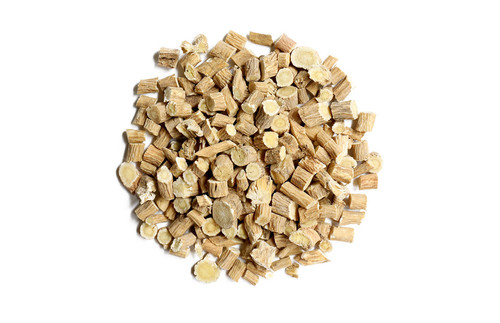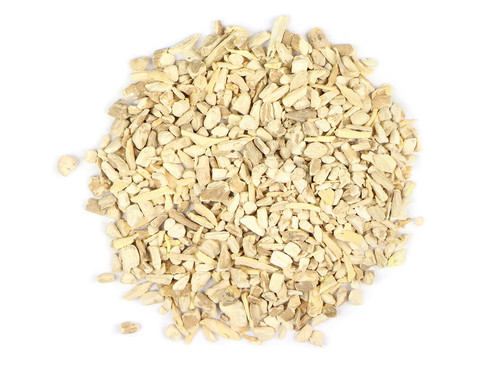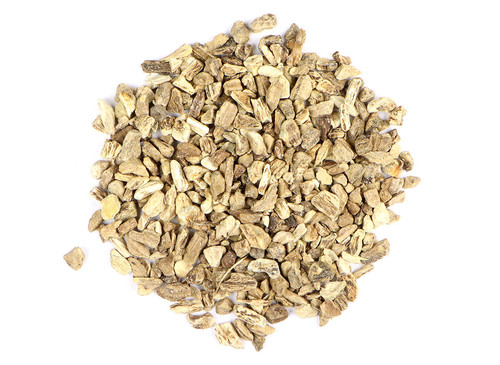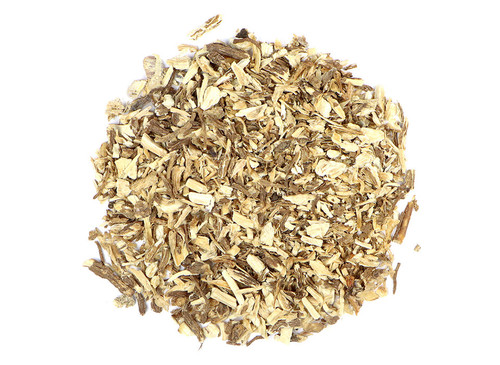Astragalus membranaceus is a sun-loving perennial in the Fabaceae family, native to China, Mongolia, and North Korea. Its root has been used for centuries in herbal practices, often tinctured, brewed as tea, or simmered in soups, stews, and broths.
Astragalus has a long history of use in Asian herbal traditions. It grows in grassy regions and on mountainsides, thriving in sunny conditions. For cultivation, the plant is typically harvested after four or five years, with roots collected in spring or fall, then sun-dried and sliced for use. The slices are yellow, with a sweet, moist flavor and a firm, fibrous texture.
In herbal practices, astragalus is valued as an adaptogen, supporting energy levels, stress resilience, and immune health. It is also recognized for promoting heart health in healthy individuals. Common recommendations suggest using 9-15 grams (3 to 5 tablespoons) of the dried root daily as a decoction, prepared by boiling the ground root in water, or taking it in capsule or extract form. Other names for the herb include membranous milkvetch and huang qi.
PRECAUTIONS
No known precautions. We recommend that you consult with a qualified healthcare practitioner before using herbal products, particularly if you are pregnant, nursing, or on any medications.
This statement has not been evaluated by the Food and Drug Administration. This product is not intended to diagnose, treat, cure, or prevent any disease. For educational purposes only.










